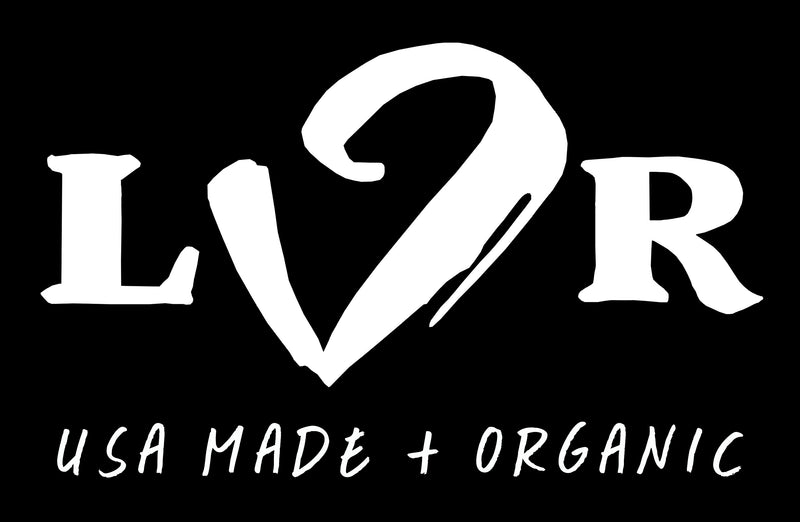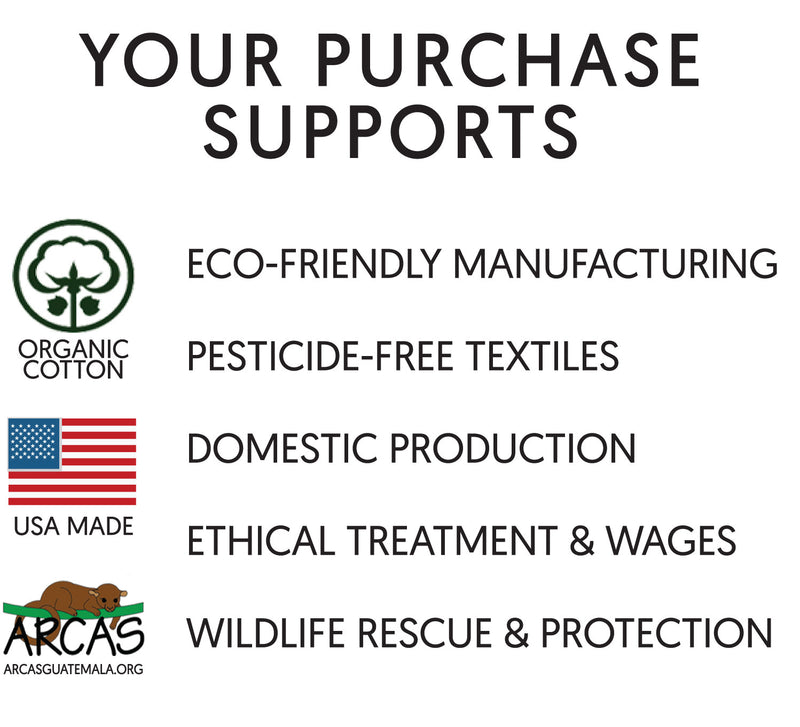Why Organic?
LVR supports organic agricultural methods that treat the fibers of our garments with care, rather than pesticides, and have a minimal effect on our environment.
Cotton farming is not what it used to be. What once utilized mostly sustainable farming techniques now uses 25% of the world's chemical pesticides that are detrimental to people, wildlife, and the environment. Let's get more specific!
Pesticides used on conventionally grown cotton are among the most harmful.
Check out the alarming facts below:
-Pesticide exposure has been linked to neurological disorders, cancers, asthma, severe headaches, fatigue, nausea, and birth defects. Pesticides were originally developed as toxic nerve agents during WWII and it is no wonder they have been linked to many forms of cancer.
-The Environmental Protection Agency (EPA) considers 7 of the top 15 pesticides used on cotton in the United States as "possible," "likely," "probable," or "known" to cause cancer in humans.
-The World Health Organization estimates that pesticides poison at least 3,000,000 people every year, with approximately 355,000 people dying unintentionally from pesticide poisoning annually. (reference: The world health report Shaping the Future. Geneva, World Health Organization.)
-Only 0.1% of pesticides end up on pests and 99.9% ends up in water, air, and soil.
-The EPA has reported that an estimated 'one to two million' birds are killed annually by carbofuran, just one insecticide used on cotton! One granule of carbofuran is enough to kill a songbird.
-As insects gradually become resistant to pesticides, ever-increasing amounts are applied to be effective, resulting in massive ecological disasters and crop failures.
-According to the United States Agency for Toxic Substances and Disease Registry, children that are exposed to methyl parathion, an insecticide, suffer memory loss and emotional swings
-Pesticides used on cotton cause acute poisonings and chronic illness to farm workers. Acute respiratory symptoms and other health effects in communities surrounding cotton farms are correlated with high use of defoliation chemicals.
Organic agricultural methods help minimize our exposure to toxins and promote a return to safe and sustainable practices. In order to be certified organic, the farm must be pesticide free for at least three years and must meet international organic standards.
Here are some other benefits of organic farming:
-Manual farming and organic practices use 50% less fuel and energy and emits fewer greenhouse gases then conventional farming thus having a lower carbon footprint.
-Organic cotton is hypo-allergenic, gentle on your skin and perfect for people with allergies, skin sensitivities and chemical sensitivities. Even if you don't have sensitive skin, organic cotton will feel better against your skin.
-Organic farming eliminates the amount of pesticides, synthetic fertilizers and chemicals introduced into our ecosystem that severely effect plant life, wildlife, water resources and food supply.
-Organic cotton promotes water conservation and the development of healthier soil in an approach that is nature-friendly and helps preserve the balance of our ecosystem.
-Higher quality clothes: Organic cotton plants produce longer-stable cotton fibers which yield stronger yarn and more durable fabrics. -Pesticide-free long-stable cotton also feels softer and more breathable and comfortable against the skin.
-Eco-friendly processing does not compromise workers' health and helps reduce water and electric use and toxic runoff.
There are quite a few eco-friendly fabrics options available in today's world beyond organic cotton. Hemp, certain types of rayon made from bamboo fibers, and our favorite two, recycled polyester and Modal.
Recycled polyester gives all of the benefits of the synthetic fiber polyester, while dramatically lowering the environmental effects of manufacturing it. Polyester is the most commonly used fabric type in the world, as it accounts for about 45% of the world’s textiles. Unfortunately for the Earth, polyester is made from PET, which comes from oil petroleum. It is estimated that it takes 70 million barrels of oil to produce polyester fabrics each year. When compared to the overall usage of oil, the world uses about 80 million barrels of oil per day, which means that polyester for textiles accounts roughly 0.3% of oil used in the world today.
Recycled polyester is among our top earth-friendly fabric choices for these three main reasons:
-The energy needed to make recycled polyester is less than ½ what was needed to make the virgin polyester in the first place.
-Using recycled fibers lowers the demand for even more petroleum based original virgin products.
-By recycling plastic bottles and other forms of polyester fibers, we are keeping all of those disposed of items out of landfills.
Modal is also an LVR favorite. As a sustainable eco-friendly rayon fabric, Modal is 100% biodegradable, durable, extremely soft, and is made from cellulose extracted from beech trees using a non-toxic, chemical-free process.
We at LVR plan to continue researching and testing the best eco-friendly fabric options available in today's market, and will continue to only dye with low impact dyes in Los Angeles. Our goals are to respect our planet by using earth friendly fabrics and production techniques, and offer beautiful garments that are a pleasure to feel, touch and wear.

